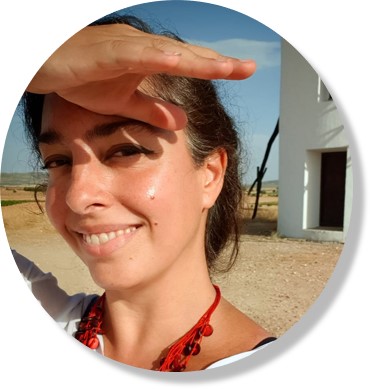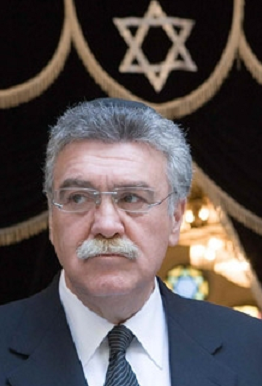December 31st, 2021 – Shabbat is almost here
And today we will listen to a classic piece from the Sephardic tradition of Thessaloniki, Alevanta, Jako, en la voz de David Saltiel.

Hello, how are you? I hope well. In a good part of the world today it is the last day of the year. I will spend the day walking (the weather is great!) and relaxing with my husband and having dinner, eating and drinking with my family in the evening.
And in a few days a tour of Jako el Muzikante, the band work with, that plays Sephardic music from the Oriental tradition, starts in Germany and Belgium. The dates and places are here. For now it seems that the concert in Brussels will be possible, but the situation is changing fast. So if you are in the area of North Rhine-Westphalia or in Brussels, have a look at the website with the dates. You won’t regret it. And if you have any questions, let me know!
So in relation to this news, let’s listen to the song that inspired the name given to the project by its artistic director, Xurxo Fernandes: La Alegría de Jaco, which is what they have called it in this particular album, by David Saltiel.
Then, please, spread the word.
| Share this with a friend, right from here |
About David Saltiel
 He was born there in 1931 and he is considered the last singer in the “old Salonica style, harking back to the old 78s released between the wars” (from World Music. The Rough Guide. World Music: Africa, Europe and the Middle East).
He was born there in 1931 and he is considered the last singer in the “old Salonica style, harking back to the old 78s released between the wars” (from World Music. The Rough Guide. World Music: Africa, Europe and the Middle East).
David Saltiel is the President of the Jewish Community of Thessaloniki and the President of the Central Board of Jewish Communities in Greece. I believe that in recent years his work in the fight against anti-Semitism and his activism for the recovery of Jewish history in Greece have occupied him much more than music. If you look him up on the internet, you will see that he is very active, but in that line of activity. If you want to read more about him in this regard, you can read this interview. It’s in Greek but I see that Google’s automatic translation works quite well.
This ? picture is David Saltiel is from the website of Radio Sefarad.
“As a child of the post – War era I felt it was my duty to become a ‘bridge’ between old and new. I explored the roots of my religion without feeling confined by diversity. I proudly embraced the Greek, the Salonican, the Jew. My motto in life is that bridging the gaps can only bring to positive results. This spirit guides me in my personal life, my work, my activities for the benefit of the Jewish Community, for the strengthening of the relations between Greece and Israel, as well as between Diasporas.” Words by David Saltiel when he was awarded with the Grand Commander of the Order of the Phoenix, by the President of the Hellenic Republic, January 2020 (full report, here).
In the bookled of the album that includes the piece of today (described in the next section) we read:
“[…] the living tradition of David Saltiel, a folk singer from one of the largest Sephardi communities of the former Ottoman Empire, that of Thessaloniki. The present performances depict a style which predates the international commercialization of this repertoire. Unlike his fellow musicians, most of whom emigrated before the Holocaust, Saltiel never left his hometown, and therefore had little exposure to outside influences such as other Sephardi repertoires.
David Saltiel’s unique repertoire reflects the state of the Sephardi song in Thessaloniki, prior to its mediated post-World War II revival. […] Saltiel’s repertoire also reflects the overall modernization of the Ladino song repertoire in terms of its content and performance context, which shifted from the home and family gatherings to the coffee house and theatre.”
About the piece
 This recording is included in the album Jewish-Spanish Songs from Thessaloniki (Oriente Musik, 1998), in which Saltiel is accompained by Markos Skoulios (oud), Jorgos Mavrommatis (kanun), Jorgos Psaltis (violin), Leftheris Pavlou (frame drum) and Nikos Tzannis-Ginnerup (lyra).
This recording is included in the album Jewish-Spanish Songs from Thessaloniki (Oriente Musik, 1998), in which Saltiel is accompained by Markos Skoulios (oud), Jorgos Mavrommatis (kanun), Jorgos Psaltis (violin), Leftheris Pavlou (frame drum) and Nikos Tzannis-Ginnerup (lyra).
This piece is also played by Jako el Muzikante and it opens the album Ven al Luna Park. You can listen to their version, here. In the book (it is a CD-book), about this piece, Xurxo Fernandes explains that Jako Koen was a musician from the coffee shops, who inspired this song. About the author, at that moment, the author’s rights didn’t exist, “but it seems to be a contrafactum of the Greek song “Elenitsa”“. And that it was the duo Sadik and Gazoz who wrote the words about that man.
Do you want to listen to that mentioned “Elenitsa” piece? Here you have a recording from 1931 by Evaggelos Sofroniou.
According to the SephardiWeb of the Consejo Superior de Investigaciones Científicas of Spain, Sadid and Gazoz was:
They published eight books of popular songs in Thessaloniki between 1924 and 1935, collecting almost a hundred songs that had been published in the city’s newspapers such as La Vara, El Risón, El Rayo and El Culebro.
Alongside the lyrics of each composition, the song from which the melody is taken is noted; these are compositions made for singing and dancing, in the manner of Turkish chalguis or orchestras, for community celebrations. The themes are usually critical or satirical, amorous, or even political (such as the Judeo-Spanish version of ‘The Internationale’).“
But things are often not that simple! The piece Elenitsa is really very similar to this piece of us but Oded Erez, in his work “Becoming Mediterranean: Greek Popular Music and Ethno-Class Politics in Israel, 1952-1982” talks about the cross fertilization between rebetiko music and Ladino song, including Ladino contrafacta of popular Greek songs and he explains that:
“Perhaps best known among these contrafacta is the Ladino song Cazes wrote to the tune of the Turkish-style song “Ta matakia sou ta duo” (Those two eyes of yours) composed by the Smyrna-born violinist Yiannis Dragatsis (1886-1958). The Ladino lyrics (peppered with many Turkish words) tell of Jaco, a professional Jewish musician who (according to the lyrics) sings in weddings and circumcision ceremonies, but also in the taverna. Using his command of four different languages, he preys on customers “like a flea”“.
LYRICS
| Alevanta, Jako, en bodas i en beris, no t’amostres flako, ke tienes mushteris. Chalgiji de meana, yo les kanto sin kedar, me meto komo piola para les yevar la bolsa,Alevanta Jako, en bodas i en beris, no t’amostres flako, ke tienes mushteris. Chalgiji de meana, yo les kanto sin kedar, me maneo komo un barko a mi me yaman JakoAlevanta Jako, en bodas i en beris no t’amostres flako, ke tienes mushteris. Chalgiji de meana, yo les kanto sin kedar, se las tomo al ke beve, les kanto komo se deve. |
Wake up, Jako, to weddings and circumcisions, don’t look faint, you’ve got customers. A tavern musician. I never stop singing. I stick to them like a flea to reach their pockets.Wake up, Jako, to weddings and circumcisions, don’t look faint, you’ve got customers. A tavern musician, I never stop singing, I rock like a ship, Jaco is my name.Wake up, Jako, to weddings and circumcisions, don’t look faint, you’ve got customers. A tavern musician, I’m quite smart, I get what I want from the drunk, I sing to him as he deserves. |
